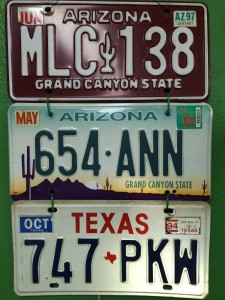There’s a word in our current parlance that pops up more often than lawn sprinklers in Phoenix. I cringe every time I hear it uttered. It makes me nuts in a forty fingernails on a chalkboard kind of way.
In the last week I’ve heard this word used to describe music, cars, trucks, food, television shows, cartoon videos, athletes, flowers, newspaper articles, soda, baseball stadiums, home runs, gas mileage, slam dunks, clothes, and sale prices. I’ve also heard it used to describe monumental feats of human achievement such as showing up for work on time, being seated at a restaurant after a long wait, color coordinating an outfit, and successfully refueling an automobile.
It is, by all counts, the most popular, over-used, tired two-syllable superlative in America today. The word is? (As if you need me to tell you…)
Our word “awesome” has several uses:
1. Inspiring awe: “an awesome thunderstorm.”
2. Expressing awe: “they stood in awesome silence before the ancient ruins”
3. Expressive of awe or terror. “to be awestruck”.
4. Slang. Remarkable; outstanding: “Dude, that’s a totally awesome arcade game!”
Our problem? We’re stuck on #4. To us, everything is “awesome”.
“I’m home!” “Awesome!”
“Dinner’s ready.” “Awesome!”
“We’re going to the mall on Saturday.” “Awesome!”
“Here’s that report you asked for.” “Awesome!”
“Johnny used the potty chair all by himself!” “Awesome!” (Ok, that one is a big deal.)
“The Minnesota Vikings won today.” “Awesome!” (This season, even Johnny would be impressed.)
There’s nothing inherently wrong with slang words or phrases. Used appropriately, they add zip to our English language. To tell your bowling buddies, “I’m staying home this evening” isn’t nearly as colorful or descriptive as, “I’m on a short leash and layin’ close to my dish tonight.” The first sentence says where you’ll be. The second says where you’ll be, why you won’t be at the alley and communicates a “say no more” as to who put your collar on.
When a single word becomes all purpose and indiscriminate in its usage, its meaning becomes diluted. Words once bursting with flavor are now void of zest. They’ve lost their power to influence. The adjective is no longer the spicy Hot and Sour soup that prepares your taste buds for the sizzling Orange Peel Shrimp. It’s Bland-O Cream of Mushroom soup, the main ingredient of 2,001 chicken casserole recipes. Yum.
I did a search through the Bible on the word “awesome”. I learned some facts I didn’t know. The word is used approximately 34 times. In almost every instance it refers to either God Himself or the works and actions that God has performed. Interestingly, the word “awesome” does not appear in the New Testament.
The Bible is loaded with amazing accounts. Accounts that detail the heroics of incredible, ordinary people. Moses leading the Hebrew people out of Egypt. Joshua and the Battle of Jericho. Samson slaying the Philistines. David killing the giant Goliath with a slingshot. Nehemiah and company rebuilding the walls of Jerusalem. Rahab bravely hiding the spies. Gideon and only 300 men defeating the Midianites. Paul and his adventurous missionary journeys. Yet when the Bible uses the word “awesome” it’s reserved for God and His works.
David was a “man after God’s own heart” and was a mighty king of Israel, yet he’s not referred to as “awesome”. Solomon was the wisest and wealthiest man who ever lived. He built a temple with materials so grand and exquisite that to behold it would leave you breathless. Yet neither Solomon nor the temple he constructed are described as “awesome”. In the Bible, “awesome” is reserved for God.
So what are we to do with this? Am I saying that we should feel profound guilt if we use the word “awesome” for anything other than God or His works? (Could you? Please? Just for a week?) No, not really. Just think about the word and how we use it. If we use the word “awesome” to describe songs on the radio, hamburgers, and 4×4 pickup trucks, what distinction are we making in our mind when we use the word to describe God?
In a sentence…
When we apply superlatives to the ordinary, we have no meaningful way to describe that which is truly extraordinary.
Someday when we see God face to face, our words will fail us. We’ll be speechless in the presence of His glory, goodness and grace. Until then, what say we reserve our “A” word for the One worthy of it? In the meantime, we can impress one another with our expanded vocabulary. There’s lots of awe…uh, I mean…appropriate adjectives in the thesaurus.
“Come and see what GOD has done, how AWESOME his works in man’s behalf!”
– Psalm 66:5
Todd A. Thompson – November 13, 2001


